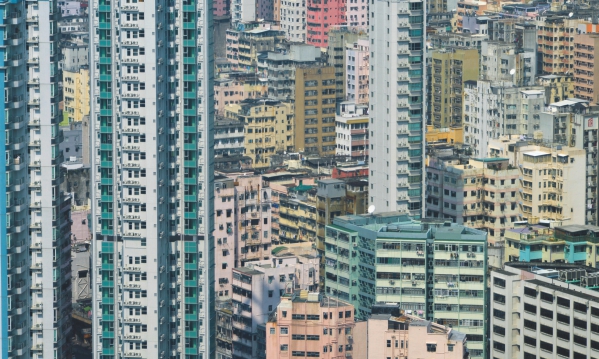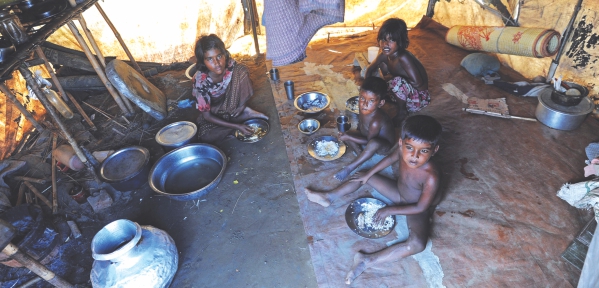| Home - Back Issues - The Team - Contact Us |
 |
| Volume 11 |Issue 44| November 09, 2012 | |
|
|
Economy
THE GREAT DIVIDE Sakib Sherani Rising inequality of virtually every sort in incomes, access to opportunity, gender-based, or in terms of quality of life appears to have made a brief appearance yet again as a topic of debate in the developed countries. One year after the vaunted "Occupy Wall Street" movement seemingly gained global traction and triggered a lasting social movement, only to dramatically fizzle out, inequality has again become a political issue in the US in the run up to the presidential election. Despite the proliferation of economic growth across different regions and countries of the world in the past two decades or so, with millions lifted out of poverty and a sizeable global middle class created as a result, inequality in many of its dimensions appears to have worsened rather than eased. A dramatic concentration of incomes and wealth is on display in every part of the globe from capitalist US, to former communist and socialist countries such as Russia, China and India. The figures are truly staggering. Before turning to individuals, a look at the global corporate powerhouses is illustrative of the trend under way. From mega financial institutions to energy conglomerates, from real estate developers to telecom giants, the world's biggest corporations raked in US$36 trillion in revenues in 2011 and over $2.6 trillion in net profits (sourced from the Global 2000 list compiled by Forbes magazine). These companies had accumulated assets of $149 trillion (2.1 times the global GDP), and collectively employed 83 million people. The sales and assets of these mega firms amounted to 1.5 and 6.4 times respectively of the total GDP of developing countries.
Even more startling proof that the "Occupy" and "We are the 99 percent" movements are not based on some radical, fringe notions but are supported by damning evidence first appeared in the UK's New Scientist magazine, issue number 2835 of Oct 24, 2011. It quotes a fascinating study by a trio of complex systems theorists at the Swiss Federal Institute of Technology in Zurich, which studied 43,000 transnational corporations (TNCs). It combines the “mathematics long used to model natural systems with comprehensive corporate data to map ownership among the world's TNCs”. The results? A core of 1,318 companies, with interlocking relationships, are at the heart of the global economy. Through their shareholding, this core appeared to collectively own a majority of the world's large blue chip and manufacturing firms representing around 80 percent of global revenues. Further analysis of the ownership structures of these companies led to perhaps the most astonishing fact: that a "super entity" of 147 tightly knit companies with a completely interlocked ownership structure controlled 40 percent of the total wealth in the entire network. Perhaps not surprisingly, most of these entities are financial institutions. Apart from revealing the extent of concentration of world economic activity and wealth in a small core of TNCs from an equity prism, the study also highlights the threat to global economic stability by such skewed concentration in a small group of highly interconnected firms. In terms of individual wealth, there are approximately 1,300 billionaires (measured in US dollars) in the world. Out of these, the top 10 alone had a cumulative net worth of just short of $400 billion at the end of 2011, larger than the combined GDP of 71 of the world's poorest and smallest countries. (In fact, another gripping statistic relating to individual wealth comes from the UK-based Tax Justice Network that a staggering $21 trillion has been stashed in tax havens around the world by just 92,000 people). Little wonder that one of the world's richest people, Warren Buffet, made the astute observation regarding the performance of the global economy and the proliferation of wealth in the recent past that “the tide lifted all the yachts” (instead of all the boats). As a bounty of wealth and opportunity is bestowed on a mere handful, hunger, malnutrition, vulnerability to disease, displacement, loss of income, and the pernicious effects of climate change are the lot of an ever-larger part of the world's population. Despite its relatively more muted income inequality than many of its peers, Pakistan is not faring too much better when it comes to this issue. The share of income of the bottom 20 percent of the households is around eight percent, while that of the top 20 percent households is almost six times larger, at 45 percent. The top 40 percent of the households have a share of income of slightly over 65 percent, compared to just under 20 percent for the bottom 40 percent of the households. The skewed nature of the returns to capital versus to labour is also very much evident in our case. In a recent partial analysis of the balance sheets of some of the biggest business houses in Pakistan (the research is still ongoing), I found that the 15 biggest business groups whose accounts were publicly available, had combined sales of around 650 biillion rupees ($6.7 billion) in 2011 but a cumulative direct employee base of less than 150,000. While there is no reason to get hysterical about the capital-intensive nature of large businesses, and the returns they make for the risks they undertake, given our surplus labour situation policymakers should strive to achieve a better capital-labour balance in economic growth, as has been done by many other countries. This would mean promoting industries such as construction and garments, to name two, that can absorb excess labour. Does inequality matter? Any facet of inequality that is borne out of an unfair distribution of resources or opportunity reflects a fundamental failure of society. This failure needs to be redressed by the state through better and more widespread education opportunities, health coverage and skills improvement among other interventions. The writer is a former economic adviser to the Government of Pakistan, and currently heads a macroeconomic consultancy based in Islamabad.
|
|
|

